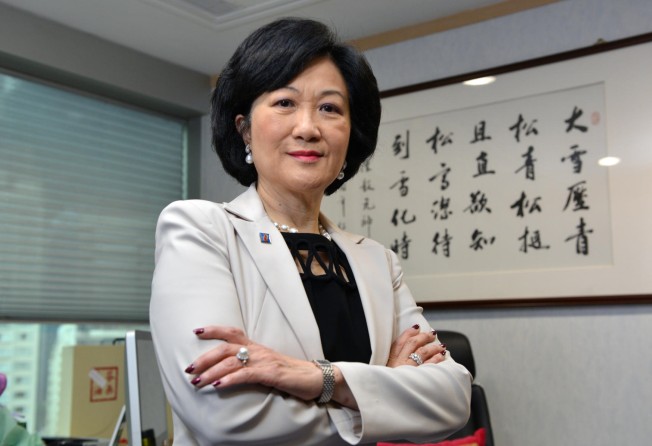Vote for chief executive must be wide open, says Regina Ip
Executive councillor says existing electoral system has failed to produce a leader who can engage with different political parties

Executive councillor Regina Ip Lau Suk-yee wants the city's next leader to be returned by a wide-open vote, saying the existing system has failed to produce "the strongest leader" who can work with different political parties.
Ip's comments come amid growing polarisation within the community and the difficulties facing Leung Chun-ying's administration.
She told the South China Morning Post the dividend brought by universal suffrage, such as a stronger mandate for chief executive, would be lost if the electoral or nominating methods were rigged to rule out some candidates.
Beijing had to "be courageous and take risks" so universal suffrage could help Hong Kong improve competitiveness and contribute to the country's political development, Ip added.
She said the level of social divide in society today was unprecedented in the past 10 years and Leung must try to lower the temperature and start garnering public opinion on reform by early next year at the latest.
"It's all the more important that we elect a chief executive who can work with people of different political backgrounds and social groups," Ip said. "Because Hong Kong is a rapidly changing society, more and more social forces have been unleashed."
The chairwoman of the New People's Party added: "It's a common observation [the current model] has not been ideal in serving Hong Kong's interest … and producing the strongest leader."
Ip reiterated that Leung's team lacked cohesion, highlighting the need for governance as well as electoral reforms.
In 2007, the National People's Congress Standing Committee decided the chief executive may be elected by universal suffrage in 2017, "upon nomination by a broadly representative nominating committee in accordance with democratic procedures".
Pan-democrats worried that their hopefuls could be ousted during the nomination process, and Ip suggested that to ease fears, "it's important to design a nominating method which is objective, reasonable [and] scientific", so that the "democratic procedures will be competitive and allow the best candidates to get nominated".
But Ip also expressed reservation about the view of former commerce minister Frederick Ma Si-hang that Beijing should let pan-democrats run for chief executive in 2017 to "cure" the political climate.
Democrats' participation should not be treated as a "gold standard" of political progress, she said.
"I believe that people should be allowed to run on their own merits, on the merits of their platforms [and] personal abilities, not just because of their party affiliation," Ip said.
She said competitive elections were vital to give the future leader more public credibility and a strong mandate.
Ip believes that it is the unpredictability of election by universal suffrage that is "dogging" Beijing.
"But I'm all for encouraging Beijing to be courageous and embrace the risk," she said. "[And] I think they are thinking hard … Hong Kong is very important to Beijing, to China.
"We have contributed enormously to China's economic modernisation; we could also contribute to China's political modernisation - not only as a showcase for Taiwan but also as a laboratory for the country's political experiments."